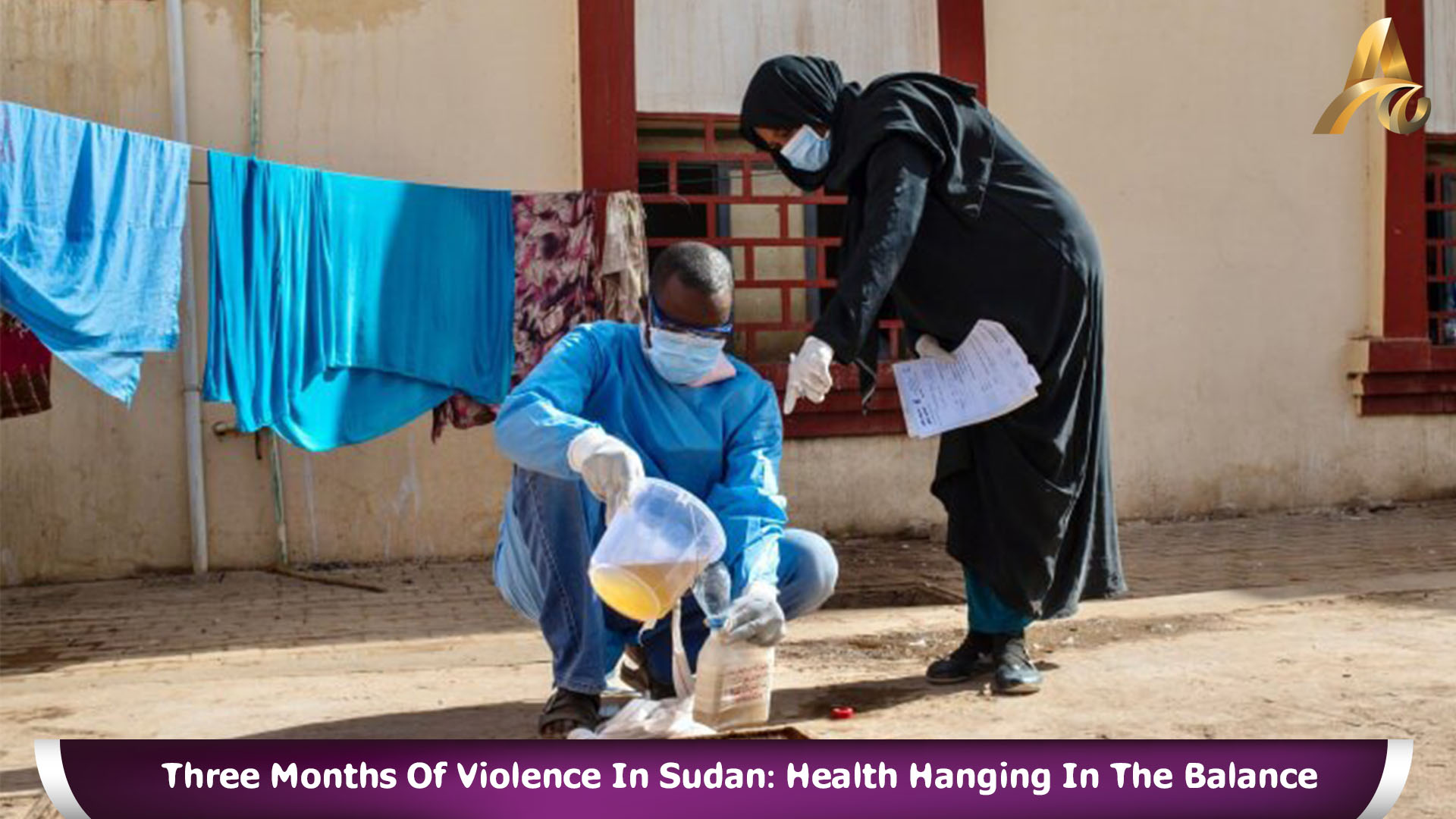INTERNATIONAL: Date: 25 July 2023 The ongoing conflict in Sudan, which has been raging since April, shows no signs of abating and has resulted in a tragic loss of lives, mass displacement, and limited access to essential services, including healthcare.
As the violence persists for the past three months, Sudan faces an unprecedented humanitarian crisis that has spilled over into six countries across two WHO regions. An astounding 24 million people are now in dire need of humanitarian aid, with 2.6 million internally displaced and an additional 757,000 forced to seek refuge in neighboring countries. Regrettably, these numbers continue to rise on a daily basis.
Within Sudan itself, the situation has reached a critical juncture, with over two-thirds of the country's hospitals rendered inoperative. Disturbingly, health care facilities have become the target of attacks, with the WHO verifying 51 such attacks between 15 April 2023 and 24 July 2023. These assaults have resulted in 10 deaths and 24 injuries. It is a heartrending tragedy that, amid this deepening crisis, health facilities and workers are facing violence, depriving innocent civilians of life-saving services when they need it the most.
In times of conflict, it is often women and children who suffer the most. Reports of sexual and gender-based violence against women and girls have surfaced, with those who are displaced becoming particularly vulnerable. Over 4 million women and girls are now at risk of such violence and must be safeguarded at all costs.
Adding to the mounting crisis, disease outbreaks that were previously under control, such as malaria, measles, dengue, and acute watery diarrhea, are now on the rise due to the disruption of basic public health services. The interruption of disease surveillance, functioning public health laboratories, and rapid response teams has contributed to this alarming trend. As the rainy season sets in, the outbreaks are expected to claim more lives unless immediate action is taken to contain their spread.
Even before the onset of the current conflict, Sudan was grappling with immense humanitarian and health challenges, triggered by long-standing conflicts, food insecurity, climate change, and a poorly functioning health system.
Unfortunately, with the prospects of peace seeming distant, the situation in Sudan is further exacerbated, making it increasingly difficult for humanitarian assistance, including emergency health supplies, to reach those in need. The access to humanitarian aid remains severely limited within the country.
For the hundreds of thousands seeking refuge across borders, life remains precarious. Access to health services is uneven, especially in remote border areas with weak healthcare systems and insufficient numbers of healthcare workers. Several countries receiving refugees, such as the Central African Republic, Chad, Ethiopia, and South Sudan, already bear the burden of hosting large numbers of people displaced by prolonged conflicts. These individuals are living in dire conditions without access to essential services, creating a dire need for support that continues to grow.
In response to the crisis, the WHO is working tirelessly to provide essential health services. Their teams have been on the ground since the eruption of armed violence, striving to ensure access to healthcare services. Collaborating with partners within the country and across borders, the WHO is committed to delivering urgently needed life-saving medical supplies and strengthening disease surveillance systems for detecting outbreaks and facilitating rapid responses.
Standing in solidarity with the people of Sudan, the WHO remains determined to persist in delivering lifesaving aid despite the formidable challenges hampering their efforts. They call for the protection of civilians, humanitarian workers, health facilities, personnel, and patients, stressing that their safety must be respected by all parties involved in the conflict.
(source WHO)
























